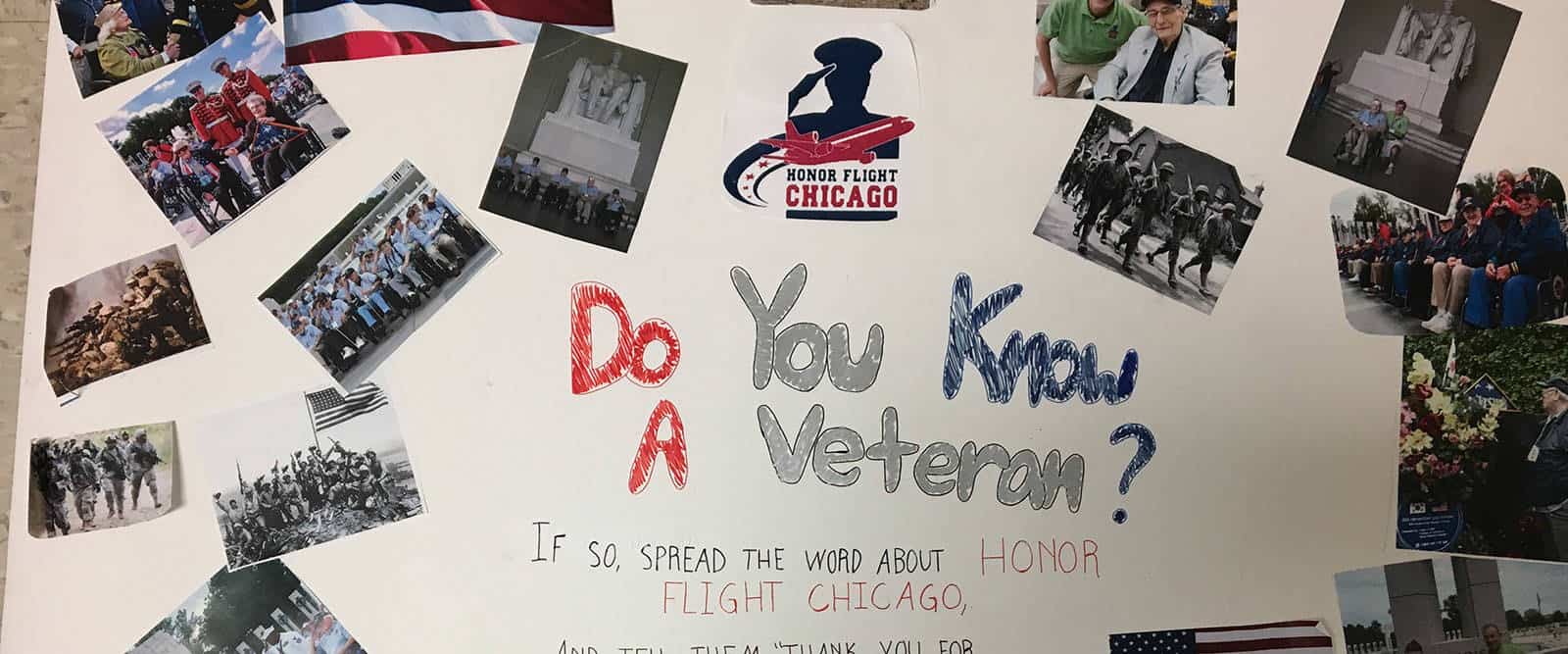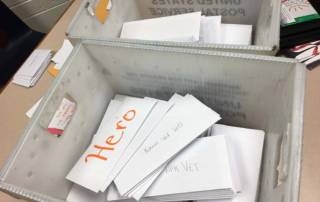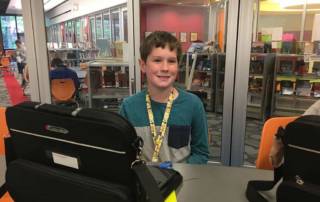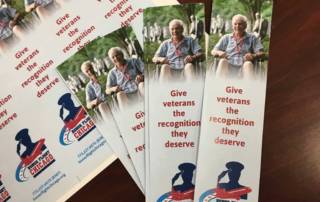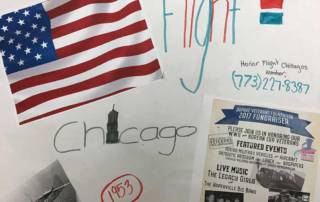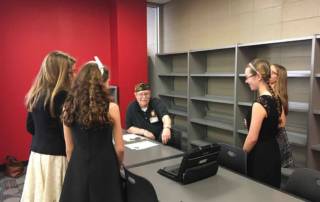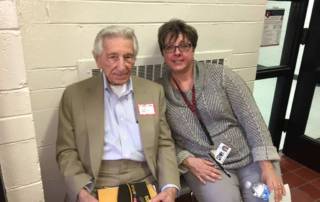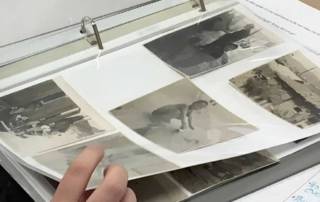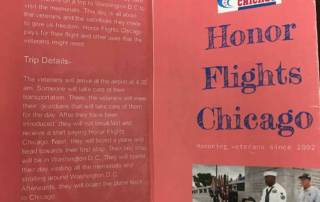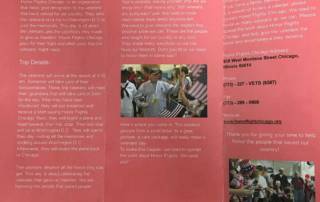By Annie Kane, Hadley Junior High School science teacher
I cannot thank you all enough for what you have done for our students and our school this year!
Our problem-based learning activity started when Mary Pettinato came to speak to our students at the kick-off event, telling students about Honor Flight Chicago, presenting them with problems to solve and challenging them to do their part to help the organization honor veterans. Mary can only be described as a force of nature. She is a compelling speaker, and by the end of her presentation she had an army of 350 sixth graders who were inspired to help her organization in any way they could. After the event, she was surrounded by students giving hugs, shaking hands, and thanking her for coming.
Students then had the opportunity to meet and interview veterans from WWII and the Korean War. The day was emotional for students and staff alike. Teachers with a free period, parents and office staff could be seen slipping into rooms to hear some of the veterans’ stories. History we had learned about in books now had a face and a personal story to make it more meaningful. Students asked questions and took notes, then wrote a narrative about the veteran they interviewed.
My personal favorite moment that day was when I called my mother, a woman who had grown up in France during WWII, with WWII Tank Commander Peter Gilea beside me. He had fought his way across Europe starting at D-Day. I wanted to introduce her to one of the heroes responsible for the liberation of her country when she was a girl. Hearing her speak on behalf of France to thank him for her freedom is a touching moment that I won’t forget. Impromptu applause, hugs and handshakes by students occurred throughout the day, and you could hear students thanking veterans for their service.
Next, students wrote narratives about the veterans, and were charged with coming up with solutions to the problem of how to best help Honor Flight Chicago honor our veterans. We asked students to consider Korean Veterans in particular, as they were veterans from a largely forgotten war.
After the students designed their solutions, they presented to an expert panel of veterans and Honor Flight Chicago volunteers. The panel heard the students ideas, asked questions and gave the students feedback on their solutions in order to improve them. Having experts hear student ideas and give suggestions is a powerful part of problem-based learning.
Students came up with many ideas based upon what Mary presented when she had spoken to them. Many wanted to have our school write letters for mail call, tell impact stories of veterans by making podcasts or videos made of the narratives they had written. However, others went in a variety of other directions. For example:
- One group designed a coffee cup with the Honor Flight Chicago logo and a QR code on it that would link people to the HFC website for donations.
- Another group thought about visiting senior homes in the area to share information about HFC with eligible veterans.
- A third group decided to design an Honor Flight Chicago App idea to pitch to the Verizon App Challenge competition.
- Other groups wanted to distribute HFC bookmarks at the local library, bookstore or elsewhere in the community to inform the public about the organization and encourage donations.
Many of these ideas went on to be implemented by students and teachers. Yet these are only a few of the many ideas students created and defended after presenting them to experts.
Honor Flight Chicago partnered with Hadley students and teachers throughout this process, providing access to veterans and HFC staff, giving students inspiration, giving students feedback on their ideas, setting up an appointment for our students to work with their graphic designer to design bookmarks, and more.
We have heard repeatedly from many students that they knew veterans were important, but that their awareness of the importance of veterans was permanently elevated and changed by this experience. As educators, we were happy that students collaborated, created solutions, thought critically, and communicated ideas in the process.



